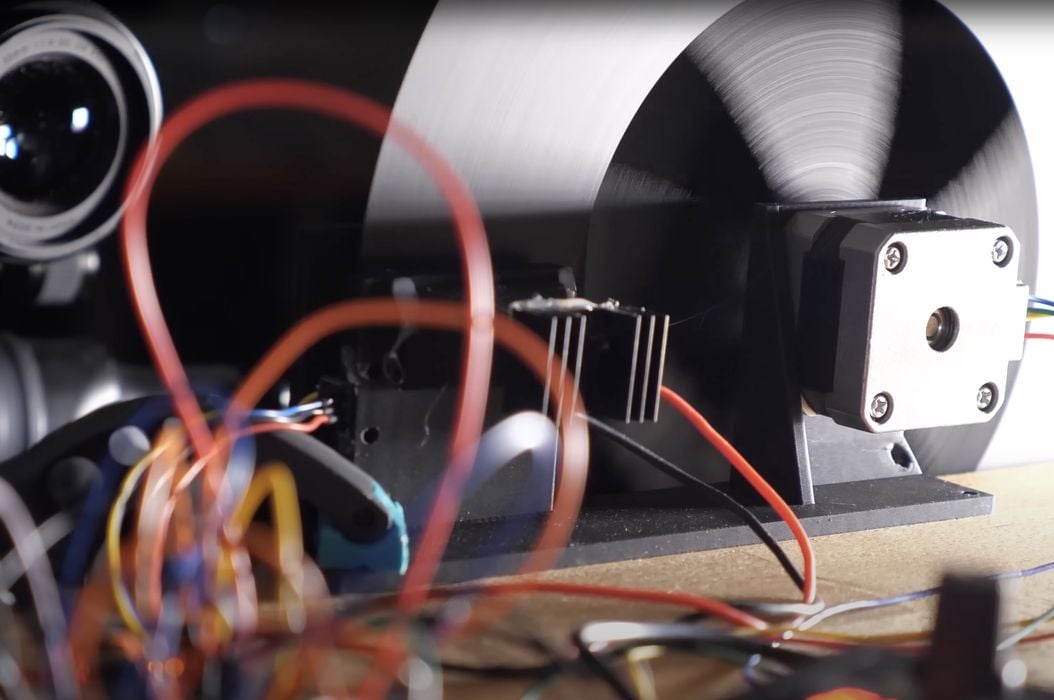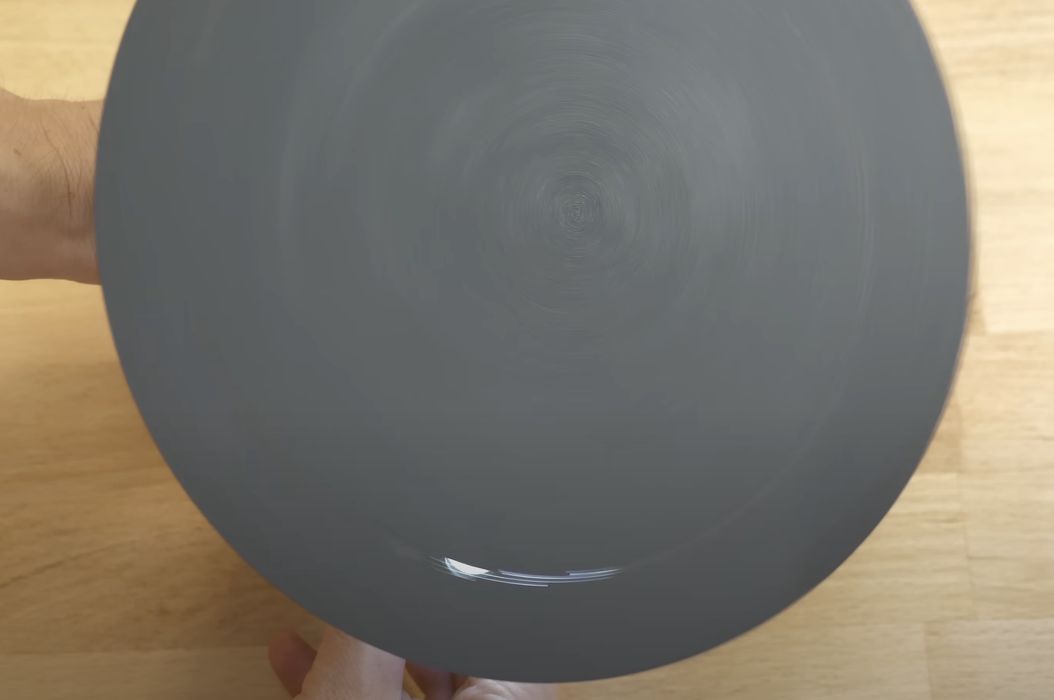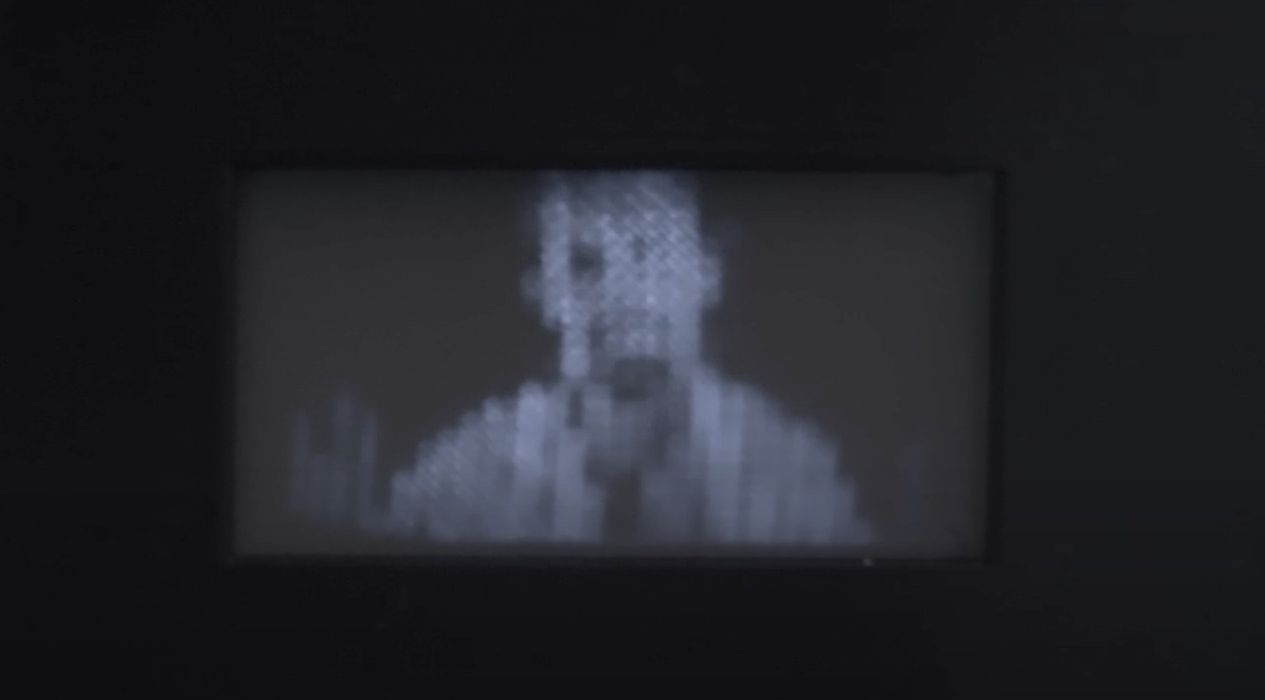
This week’s selection is the 3D Printed Mechanical TV by YouTuber bitluni.
Hold on, what is a “mechanical TV”?
Long before the advent of electronics, the idea of a visual display was conceived and patented by German inventor Paul Gottlieb Nipkow in 1884. The concept is to have a spinning disk with carefully placed holes. A light shining from behind the spinning disk will then illuminate a scene. Wikipedia explains how this works:
“Each hole in the spiral takes a “slice” through the image which is picked up as a temporal pattern of light and dark by a sensor. If the sensor is made to control a light behind a second Nipkow disk rotating synchronously at the same speed and in the same direction, the image will be reproduced line-by-line. The size of the reproduced image is again determined by the size of the disc; a larger disc produces a larger image.”
Bitluni produces “funny tutorial videos about building gadgets”, many of which involve 3D printing in one way or another. This video about the mechanical TV project didn’t seem particularly funny, although there were a few fiery moments.

An interesting twist to the design was to use light-sensitive filament. Here bitluni printed a “screen”, onto which the light would be projected. The idea is that the scan lines strike the screen only intermittently, and might be missed. The reactive filament would briefly glow when energized, much like the phosphor in an old-style CRT screen.
The project’s main challenge seemed to be to get the speeds properly aligned so that the display would actually work. Of course, there were considerable electronics involved, although bitluni said the project could be completed for less than US$50 in parts.

Did it work? It did indeed, and you can watch the video to see the entire process:
This is quite an amusing project, as Bitluni has resurrected a technology concept from the 19th century, which in truth was actually quite far ahead of its time. True TV didn’t actually appear until the 1930s, and even then it took many years before content makers figured out how to use it and grow into TV networks.
For now, however, you can relive the heady invention-rich days of 140 years ago with this unusual 3D print project.
